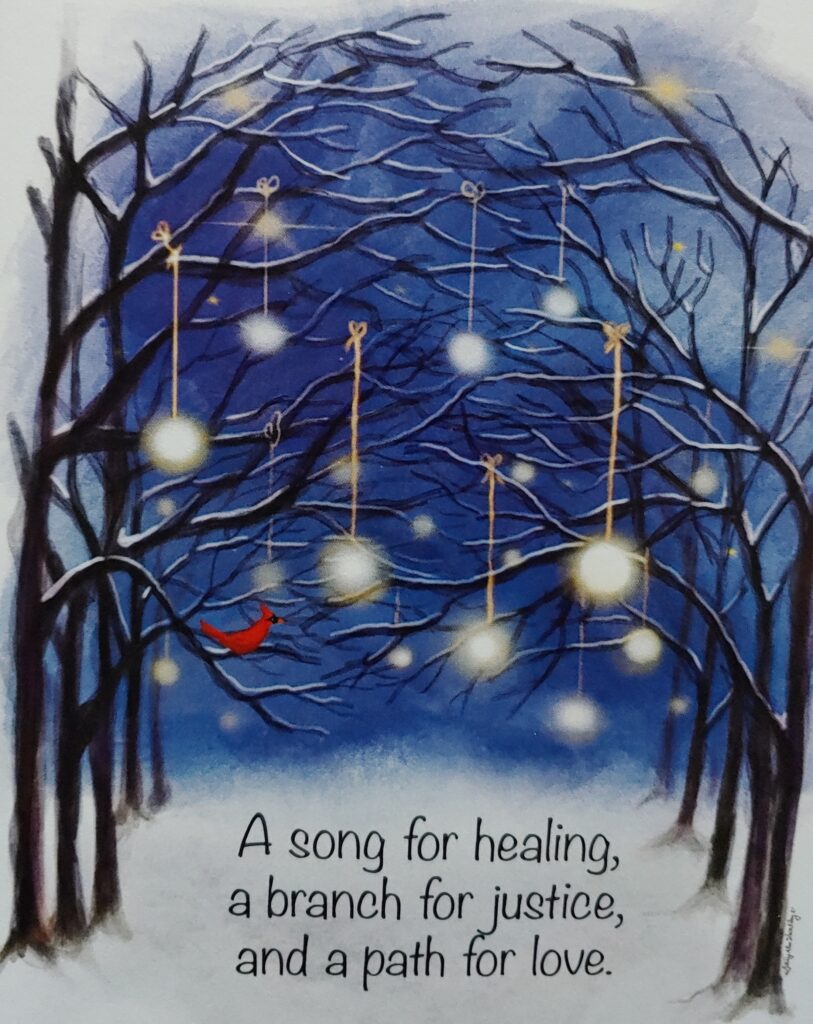Readings: Jeremiah 33:14-16; Psalm 25:1-10; Thessalonians 3:9-13; Luke 21:25-35
There will be signs in the sun, the moon, and the stars, and on the earth, distress among nations confused by the roaring of the sea and the waves. People will faint from fear and foreboding of what is coming upon the world, for the powers of the heaven will be shaken. Then they will see the Son of Man coming in a cloud with power and great glory. Now when these things begin to take place, stand up and raise your heads, because your redemption is drawing near. Luke 21:25-28, NRSV
If all mankind were to disappear, the world would regenerate back to the rich state
of equilibrium that existed 10,000 years ago. If insects were to vanish,
the environment would collapse into chaos.*
This prophecy from the eminent scientist E.O. Wilson presents the real apocalypse of our time. Here’s our Advent version, the “Little Apocalypse” of Luke: “There will be signs in the sun, the moon, and the stars, and on earth distress among nations confused by the roaring of the sea and the waves. People will faint from fear and foreboding of what is coming upon the world, for the powers of the heavens will be shaken. . . . Then they will see ‘the Son of Man coming in a cloud’ with power and great glory. Now when these things begin to take place, stand up and raise your heads, because your redemption is drawing near.”
It is frankly spiritual malpractice to read gospels like the one appointed for today, and not challenge the sense of redemption-from-above, which made sense in the Ptolemaic universe of the Bible, but which today is deadly. Asking people to “raise their heads” and look up into the clouds for their redemption—while the earth burns up beneath them—has led us to disaster.
This is not new. Ecotheologians have been warning for decades about the deleterious effects of a “left behind” eschatology, one that sees the earth as dispensable since we are on our way to the New Jerusalem in the sky. But now the distant drumbeat has become a deafening percussion. Now the evidence of our misuse of the earth is incontrovertible, and we must ask one another to look not up, but around us and beneath us.
This week I read an article on the disappearance of insect species. The threats to bugs, it turns out, are mostly the same as those that afflict other animals. Loss of habitat, fertilizers that leach out of fields and destabilize the plant life insects depend on, millions of pounds of pesticides laid down each year, climate change, light pollution. A friend who runs a pest control business told me that if you call an exterminator to kill all the backyard mosquitos for your daughter’s birthday party, most will simply blitz the yard with chemicals powerful enough to kill not just the mosquitos in the grass—but every living thing.
But our life depends on insects. They are key to most every food chain, the earth’s principal pollinators, and critical decomposers. If humans were to disappear from the face of the earth, as E.O. Wilson reminds us, the planet would undergo a renaissance. If insects go, the ecosystem collapses.
T.S. Eliot mused that the world would end, “not with a bang, but a whimper.” For centuries, Christian apocalyptic has been all about bang. The irony is, we could end it all by neglecting the ant and the bee and the beetle and their ten quintillion brothers and sisters (that’s 10 with 18 zeroes after it).
Advent, squinting in opposite directions, envisions both the coming of the infant Christ at the beginning of sacred time, and his coming again at the End. We are to live our lives in view of that End, making wise choices, resisting short-term thinking that leads to long-term calamity. Christians in centuries past can be forgiven for looking to the clouds, for taking the health and vitality of the earth, and therefore the vitality of the human species, for granted. We cannot.
*“Bugs in the System,” The New Yorker, November 1, 2021.
Offered by David Anderson, to light the path to Bethlehem.


